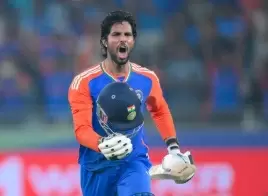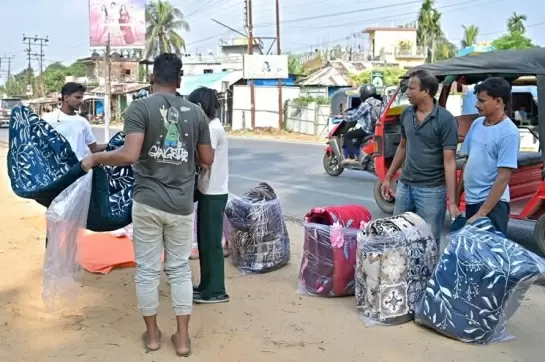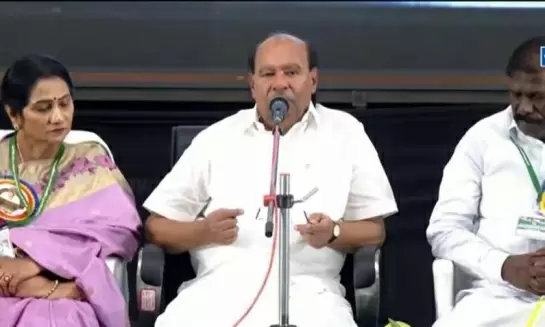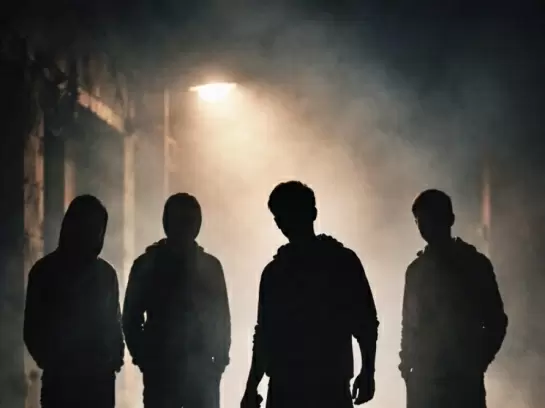“Being a chosen shepherd of Christ I am accountable for the lost sheep”

01-March-2014
Vol 5 | Issue 9
Bishop Rayappu Joseph is called the Oscar Romeiro of Mannar by the Tamils of Sri Lanka. He is known as ‘Kotiya’ or the Tiger Bishop by the Sinhalese.
A Doctorate in Canon Law from Rome, he was ordained as the second Bishop of Mannar in 1992. Since then he has become the voice of the voiceless Tamil civilians in the north, and the most hated person in the Sinhalese dominated south.
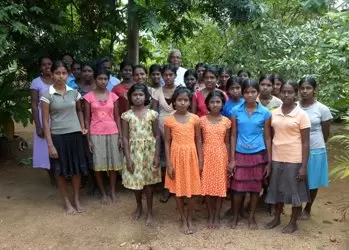 |
|
Bishop Rayappu Joseph, seen in this photograph with war affected children in Tamil areas, is waging a determined battle for justice in North Sri Lanka
|
Under his leadership, Mannar diocese is running homes for war orphans, abandoned children and the elderly, health care centers, dispensaries, girls’ hostels, vocational training centers, rehabilitation centers for refugees, centers for fishermen, and conducting human rights training programs for the clergy and civilians.
For the work he is doing in the war ravaged Tamil areas, people already feel that he might be in the reckoning for a Nobel Peace Prize soon.
Bishop Rayappu has fostered the spirit of humanism and human rights, as he says human values and Christian values are one and the same.
In this land where no one dares to talk, he stands tall as a person who is fearless, forthright, morally upright, and most importantly outspoken when it comes to highlighting the problems of his people as he considers them as his prime duty.
He believes that it is the Providence of God that he is the Bishop and takes up the cases of torture, disappearances, land grab, and the issues of women, especially war widows, orphans, and the crippled as a special mission entrusted to him.
He says, “Being a chosen shepherd of Christ I am accountable for the lost sheep”.
Mannar is one place where one can see protests against human rights atrocities and they become exceptional as a good number of priests in their cassocks take part in them.
In September 2008, as the civil war was escalating, and Colombo ordered the foreign observers to leave the war zone, the Bishop ventured into Killinochi to assess the situation there.
He made a bold statement to the media later that the Tamils in the war ravaged zone had been reduced to the status of ‘walking skeletons.’
He says today their condition has worsened as they have been completely silenced.
“They walk but without the inner life. The government has forced them to live with bitter memories. Those affected by the conflict are denied access to psycho social counseling,” he says.
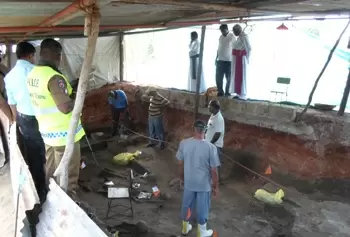 |
|
The Bishop inspecting one of the mass graves located in the Tamil North
|
The Bishop says the war against the LTTE was over in 2009, but the government is still in war mode.
The clear evidence for it is the massive presence of armed forces and the police in Tamil areas. It is estimated that over 90 percent of the Sri Lankan armed forces is concentrated in the Tamil dominated areas of the North and East.
He wonders why there should be PTA (Prevention of Terrorism Act) when the government claims that it has wiped out ‘terrorism’.
The Northern Provincial Council is ‘toothless,’ he says and demands that more powers be given to the provincial Chief Minister to deal with local issues.
The Bishop calls for a halt to the militarization, interference in civil administration, extra judicial executions, cultural domination of Buddhists, installation of statues of Buddha where there are no Buddhists and in holy places of people of other faith, imposition of Sinhala as a medium of instruction in schools, and coercion of Tamils to study Sinhala, which he says are part of the ethnic and structural cleansing of the Tamils taking place under the present military Governor of the Northern province.
He has championed the cause of the people displaced from Mullikulam where the Navy is constructing a huge base. He wants the government to return the land taken away from the civilians.
The Bishop is a targeted person. Often Colombo’s notorious Criminal Investigation Department sleuths are at his door steps to find out what he had narrated to the visiting dignitaries from other countries who call on him.
He was interrogated after he appeared before the LLRC for making a submission on the missing persons and seeking clarification on the 146,679 unaccounted persons. The last interrogation was after his statement on the deportation of Tamil asylum seekers from Australia.
Bishop Rayappu demands an independent international inquiry into the genocide of the Tamils. He argues that only an international inquiry under the aegis of the UN will bring out the truth.
He wants every human rights respecting country to force Sri Lanka to accept an International Inquiry and to look into the material losses suffered by the Tamils to be accounted.
He does not want the accused criminals to become investigators of their own crime!
On the idea of setting up of the Truth and Reconciliation Commission on the lines of South Africa, the Bishop feels it is premature to take up such a momentous task without taking the victimized community into confidence.
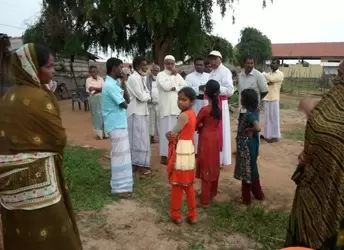 |
|
The Bishop interacting with Muslim villagers
|
“In South Africa the oppressors were not it power when the TRC started functioning, but in Sri Lanka the regime which is accused of committing Genocide would be the one appointing the members of the TRC.”
Navi Pillai, the UN High Commissioner for Human Rights, and Stephen Rapp, the US Ambassador-at-Large for War Crimes Issues in the Office of Global Criminal Justice are some of the international dignitaries who have held discussions with him.
During the meeting with Rapp, the Bishop wanted an international Investigation on the Sri Lankan forces alleging that they had used cluster bombs in the heavily crowded ‘No Fire’ or ‘Safe Zone’ during the war.
In 2012 too, the Bishop and 31 other clergy members wrote to the UN Human Rights Commissioner demanding an international investigation.
On the much harped about issue of development of the north, the Bishop feels the parameter for judging these development should be to ask whether the local people are happy with it.
One should not draw conclusions that the people are happy just by looking at the massive roads and other infrastructural developments, he urges.
"We want freedom not roads. Development is welcome, but freedom is what we thirst; we need a constitution to which we can go back and refer. We are a nation; we have our identity which needs to be protected. We have our right to develop ourselves,” he says.
Reconciliation to him should begin with justice. People may be forgiven but they need to pay for their crimes is his contention.
Dr. Paul Newman, an expert on Sri Lankan affairs, holds a Doctorate of Philosophy on ‘Internal Displacement and Human Rights situation in Northern Sri Lanka from Bangalore University. He was one of the four public speakers at the Permanent People’s Tribunal on War Crimes against Sri Lanka







